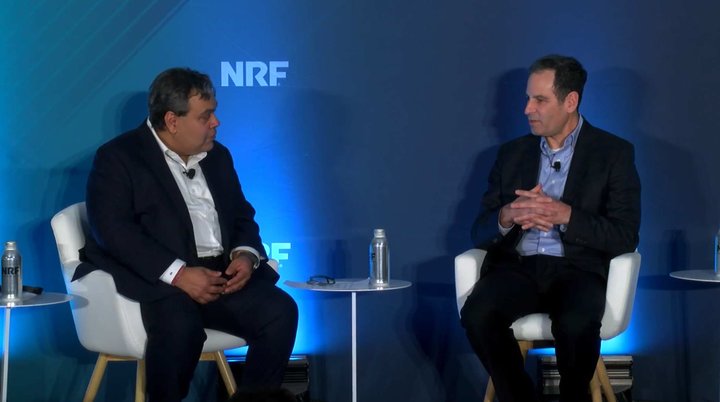In an era where retail forecasting has become the linchpin for navigating the tumultuous waters of consumer trends and market shifts, the discussion between Prashant Agrawal, CEO of Impact Analytics, and Ben Pivar, Senior Vice President and Chief Information Officer at Carter's, offered an illuminating glimpse into the future of retail analytics. The conversation, part of a broader panel on "Retail Forecasting: Unraveling Consumer Trends and Unlocking Growth Opportunities," unfolded against the backdrop of post-pandemic recovery, technological advancements, and the relentless pursuit of accuracy in forecasting and planning.
Prashant, a former McKinsey consultant with a rich background in forecasting and pricing strategies, and Ben, a retail veteran with a physics background turned CIO, shared their insights into the challenges and innovations reshaping retail forecasting. Their discussion highlighted the critical role of accurate forecasting in retail, especially in a post-COVID-19 landscape marked by unprecedented economic fluctuations, changing consumer behaviors, and the rapid evolution of e-commerce.
"COVID-19 has fundamentally disrupted our traditional forecasting methods," Prashant noted, emphasizing the industry's reliance on historical data, which the pandemic rendered obsolete. He introduced the concept of incorporating external variables, such as weather patterns and local events, into forecasting models, underscoring the need for a more adaptive and sophisticated approach to predict future sales effectively.
Ben shared a compelling case study from Carter's, detailing the company's journey towards enhancing forecast accuracy. He discussed the challenges of forecasting for short lifecycle products in an environment of historic inflation and dynamic e-commerce strategies. "The old ways of forecasting, which were very algorithm-based, aren't as adaptive," he said, highlighting the shift towards AI and ML capabilities that allow for attributing more nuanced factors to forecasts.

Play Video

A significant theme of their conversation was the integration of AI and ML in product forecasting and data management. Prashant shared insights into Impact Analytics' use of machine learning models to incorporate a vast array of internal and external data, from inventory and pricing to weather and local events. This approach, he argued, is essential for making informed decisions in the rapidly changing retail landscape.
Ben's narrative on Carter's data journey resonated with many retailers facing similar challenges. He described the company's transition to a more modern data management system, emphasizing the importance of a unified product hierarchy and enhanced product attributes to improve forecast accuracy. "Our biggest attribute is weather," Ben revealed, explaining how seasonal shifts significantly impact sales for baby and kids' products.
The discussion also touched upon the strategic selection of vendor partners and the importance of long-term partnerships in navigating the complexities of retail analytics. Both speakers stressed the value of starting with available data, however imperfect, and iteratively refining forecasting models over time. "Don't wait for perfect data," Prashant advised, highlighting the iterative nature of AI and ML projects.
As the conversation concluded, Prashant and Ben fielded questions from the audience, addressing topics from pricing elasticity to forecast accuracy benchmarks. They shared practical advice for retailers embarking on their data and analytics journey, emphasizing the need to start with the basics and gradually build a more sophisticated forecasting framework.
This discussion offered a wealth of knowledge and practical insights for retailers looking to harness the power of forecasting to navigate the complexities of today's market. Through their shared experiences and case studies, Prashant and Ben underscored the importance of adaptive methods, technological innovation, and strategic partnerships in unlocking growth opportunities and meeting customer demands effectively.










